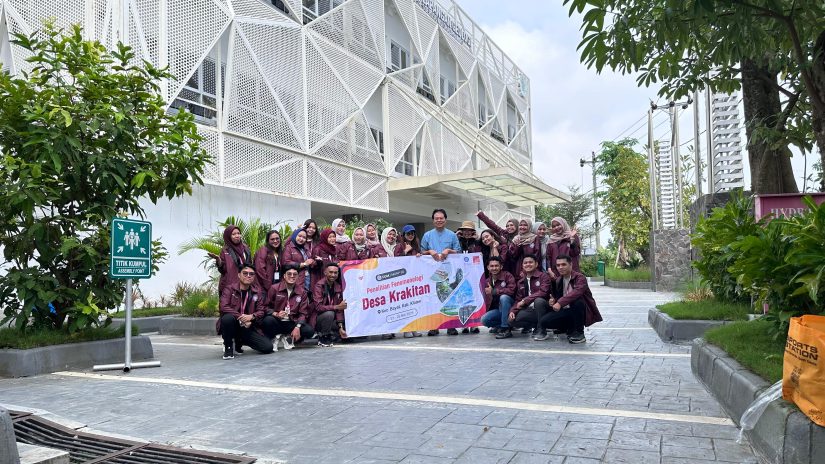
From May 23 to 25, 2025, students of the Master of Urban and Regional Planning (MPWK) Program at Universitas Gadjah Mada conducted a field study for the Research Methodology course in Krakitan Village, Bayat District, Klaten Regency. The activity aimed to apply an inductive approach directly in the field as a method to build planning knowledge grounded in local social, cultural, and environmental realities.
The first day began with a visit to the Krakitan Village Head’s office for an interview about the village’s history and to map observation points. Afterwards, students were divided into three groups (Macro, Meso, and Micro) to conduct interviews with residents. In addition to collecting social and economic data, students observed how daily activities and local history shape the village’s space and identity.
On the second day, the activities started with further field observations followed by a public lecture on Bayat’s geology. This lecture provided a scientific foundation for planning the development of a geopark based on geological, cultural, and sustainability potentials. In the afternoon, some students continued gathering additional data before concluding with group discussions.
The final day included breakfast, an evaluation session, and the return trip to Yogyakarta.
This activity directly contributed to several Sustainable Development Goals (SDGs). Through contextual learning and community engagement, it supported SDG 4 (Quality Education), reinforced the commitment to SDG 11 (Sustainable Cities and Communities), and promoted SDG 15 (Life on Land) by raising awareness of the importance of geological landscapes and local culture in environmentally conscious spatial planning.
